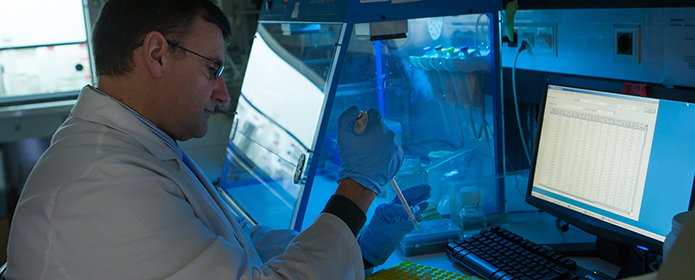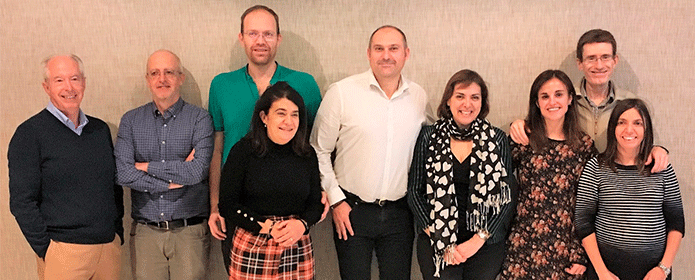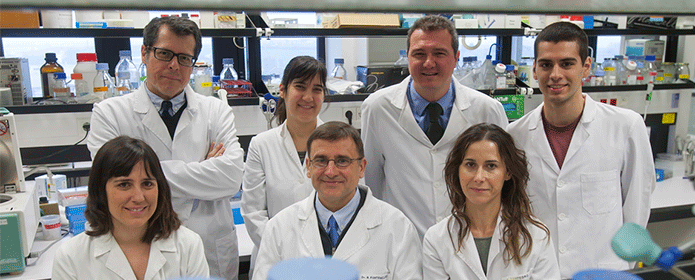The Mutua Madrileña Foundation selects a project from Cima on gene therapy for an aggressive subject porphyria.
This is a project coordinated by Drs. Antonio Fontanellas and José Luis Lanciego,

The Mutua Madrileña Foundation has selected a project of the Cima which investigates the application of gene therapy in an aggressive subject of porphyria. This is one of the two grants awarded in Navarra in the framework of the Institute of research Sanitaria de Navarra (IdiSNA), within its XVII call for grants to research in Health.
The work of Cima poses a new therapeutic strategy for this inherited metabolic disease with early neurological involvement. "It is a very aggressive form of porphyria that starts at birth. Throughout the first few years, the newborn experiences neurological degeneration that progressively incapacitates him or her. There is currently no therapy for these children," explains Dr. Antonio Fontanellas, researcher manager of laboratory of Porphyria at Cima. Dr. Fontanellas coordinates this project, in partnership with Dr. José Luis Lanciego, neuroscientist of the Neurosciences Program at Cima, and with group of experts in porphyria and genetic diseases from Mount Sinai Hospital in New York.
The project, funded with 100,000 euros, will initiate a concept test in experimental animals (mice and non-human primates). "The main difficulty is to preserve the brain development of such young children. Initially, a conjugated protein (developed at Cima in partnership with Dr. Pedro Berraondo), which is able to cross the blood-brain barrier, would be administered subcutaneously. Once a suitable brain development has been obtained, we will apply a viral gene therapy vector that provides permanent protection to the patient with a single administration. This is a typical example of new personalized and precision medicine treatments," says Dr. Fontanellas.
"The goal of this preclinical phase is to determine whether the brain distribution of both the protein and the viral vector sample the desired therapeutic effect," explains Dr. Lanciego. If the results are as expected, we will initiate a clinical essay in two patients treated by the American partner .
This strategy could also be applied to other childhood-onset neurological diseases for which there is no effective therapy.
project of the UPNAThe second project financed by the Fundación Mutua Madrileña is coordinated by Professor Jorge S. López Martínez and is part of the area "Transplants". It is an interdisciplinary project involving several universities, the National Transplant Organization and the Transplant Coordination of Navarra. Specifically, effective interview and support strategies for family consent in intensive care oriented to donation will be developed and validated.



